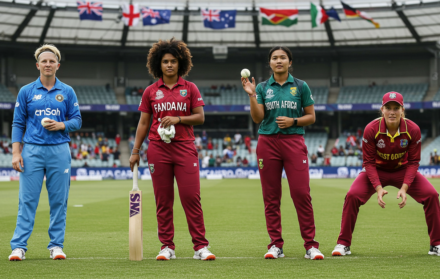
Cricket As a Social Prescription for Mental and Physical Well-being
In recent years, there has been a growing recognition of cricket as a social prescription for mental and physical well-being. This ancient sport, known for its rich history and widespread appeal, has evolved into more than just a game; it has become a powerful tool for enhancing both mental and physical health. As individuals face increasing levels of stress and sedentary lifestyles, the importance of sports like cricket in promoting overall well-being cannot be overstated.
The health benefits of playing cricket are numerous, offering a full-body workout that improves cardiovascular health, muscle strength, and endurance. Whether you’re bowling, batting, or fielding, cricket requires a range of physical activities that contribute to better fitness levels. But beyond the physical benefits, cricket also plays a significant role in enhancing mental health.
Building confidence and self-esteem through cricket is another aspect where the sport shines. Participating in cricket, whether at a competitive level or as a recreational activity, helps individuals develop a strong sense of self-worth. The challenges faced on the field, such as making quick decisions and executing them under pressure, contribute to a player’s confidence both on and off the field. This mental toughness is not only crucial in sports but also translates into everyday life, helping individuals tackle challenges with greater resilience.
Moreover, cricket is particularly beneficial for young players, as it addresses the mental aspects of cricket for young players. The sport teaches them discipline, teamwork, and how to cope with both victory and defeat. These lessons are invaluable in shaping their personalities and preparing them for the complexities of adult life. The inclusive nature of cricket further contributes to its value as a social prescription.
In today’s diverse societies, cricket’s emphasis on inclusivity and diversity ensures that people from all backgrounds can participate and thrive. Whether playing in a local league or at a more competitive level, cricket brings together individuals from different walks of life, fostering a sense of community and belonging. This social aspect of cricket is crucial for mental well-being, as it combats loneliness and promotes social interaction.
Furthermore, cricket serves as a powerful team sport that enhances teamwork and collaboration among its players. The game requires individuals to work together towards a common goal, thereby strengthening social bonds and fostering a sense of camaraderie. For many, the friendships formed on the cricket field are lifelong, providing emotional support and a strong social network.
The sport’s ability to improve hand-eye coordination through various drills is another example of its physical benefits. Regular practice and participation in cricket help in honing these motor skills, which are essential not just in sports but in everyday tasks as well. This improvement in physical capability contributes to overall well-being and promotes a healthy, active lifestyle.
Cricket as a social prescription for mental and physical well-being is a concept that holds significant promise. By engaging in this sport, individuals can improve their physical health, boost their mental resilience, and foster strong social connections. Cricket offers a holistic approach to well-being, making it an ideal choice for those looking to enhance their quality of life through sports.
Discover how cricket serves as a social prescription for mental and physical well-being, promoting health, teamwork, and community connections.
The Physical Health Benefits of Playing Cricket

Cricket, a sport loved by millions worldwide, offers a multitude of physical health benefits that make it an excellent choice for people of all ages. Whether played casually in a park or competitively on a pitch, cricket provides a full-body workout that can significantly improve physical fitness and overall health. The sport’s combination of running, throwing, catching, and batting engages multiple muscle groups, enhances cardiovascular endurance, and promotes better coordination and flexibility.
One of the primary physical benefits of cricket is its ability to improve cardiovascular health. Cricket matches, especially those lasting several hours, involve constant movement. Batsmen run between the wickets, fielders chase the ball, and bowlers engage in intense bursts of activity. This sustained physical exertion elevates the heart rate, strengthens the heart muscle, and enhances cardiovascular endurance. Regular participation in cricket can help reduce the risk of heart disease, hypertension, and other cardiovascular conditions.
In addition to cardiovascular benefits, cricket also contributes to muscle development and strength. The sport requires players to use various muscle groups in their arms, legs, and core. Batting and bowling involve significant arm and shoulder muscles, while running between the wickets engages the leg muscles. Fielding, which includes sprinting, diving, and throwing, further strengthens the muscles. Over time, these activities help build lean muscle mass, improve muscle tone, and increase overall strength.
Cricket also enhances agility, balance, and coordination. The sport requires quick reflexes and precise movements, whether it’s a batsman adjusting to a fast delivery or a fielder catching a ball at speed. These actions improve hand-eye coordination, balance, and agility. Players learn to anticipate the ball’s trajectory, adjust their stance, and react quickly, which sharpens their overall coordination and reflexes. These skills are not only beneficial for cricket but also translate into everyday activities, improving overall physical agility.
Moreover, cricket promotes flexibility and joint health. The diverse range of movements involved in the sport—such as bending, stretching, and twisting—helps maintain flexibility and keeps joints supple. This is particularly important as flexibility tends to decrease with age. Regular participation in cricket can help maintain joint health, reduce stiffness, and prevent injuries by keeping the muscles and joints in good working condition.
Cricket offers a wide range of physical health benefits, making it an excellent choice for promoting physical fitness and well-being. From improving cardiovascular health and muscle strength to enhancing agility and flexibility, cricket provides a comprehensive workout that can lead to better overall health. Whether played recreationally or competitively, cricket serves as an effective and enjoyable way to stay physically active and healthy.
The Mental Health Advantages of Playing Cricket
Beyond the physical benefits, cricket also plays a significant role in promoting mental well-being. The sport’s structured gameplay, team dynamics, and the concentration required all contribute to positive mental health outcomes. Engaging in cricket can help reduce stress, boost mood, enhance cognitive function, and foster a sense of belonging, making it a powerful tool for maintaining mental health.
One of the key mental health benefits of cricket is its ability to reduce stress and anxiety. The physical activity involved in cricket triggers the release of endorphins, the body’s natural “feel-good” hormones. These chemicals help alleviate stress and create a sense of well-being. Additionally, the focus required during a cricket match distracts players from their worries, providing a mental break from the stresses of daily life. The combination of physical exertion and mental focus makes cricket an effective way to manage stress and anxiety.
Cricket also plays a crucial role in boosting mood and combating depression. The social aspect of the sport—being part of a team, sharing victories and defeats, and building camaraderie—creates a strong support network that can significantly improve mood and emotional resilience. Regular participation in cricket provides a sense of purpose, achievement, and connection, which are essential factors in combating feelings of loneliness and depression. The shared experiences on the cricket field foster a sense of belonging and community, which can be incredibly uplifting.
Another important mental health benefit of cricket is its impact on cognitive function. Cricket requires players to think strategically, make quick decisions, and anticipate their opponents’ moves. These mental demands help improve cognitive skills such as concentration, memory, and problem-solving. Engaging in cricket regularly can enhance mental agility and keep the mind sharp, which is particularly beneficial as one ages. The sport’s strategic elements also provide mental stimulation, making it a great way to challenge the brain and keep it active.
Cricket also helps in building self-esteem and confidence. Success on the cricket field, whether through a well-played shot, a successful catch, or a match-winning performance, can significantly boost a player’s confidence and self-esteem. The recognition and encouragement from teammates and coaches further reinforce positive self-image. This increased confidence often extends beyond the cricket field, positively impacting other areas of life, such as work, education, and personal relationships.
Cricket offers substantial mental health benefits, making it a valuable tool for promoting overall well-being. From reducing stress and anxiety to boosting mood and cognitive function, cricket provides a holistic approach to mental health. The sport’s combination of physical activity, social interaction, and mental challenge creates a positive environment that supports mental resilience and emotional well-being. By engaging in cricket, individuals can enhance their mental health while enjoying the camaraderie and excitement of the game.
Cricket as a Tool for Social Connection and Community Building

Cricket is more than just a sport; it is a powerful tool for fostering social connections and building strong communities. The sport’s emphasis on teamwork, cooperation, and mutual respect makes it an ideal platform for bringing people together, regardless of age, background, or skill level. By participating in cricket, individuals can form meaningful relationships, build social networks, and contribute to the development of a cohesive and supportive community.
One of the most significant ways cricket fosters social connection is through its team-oriented nature. Cricket is a sport that requires close cooperation and communication among team members. Whether it’s coordinating fielding strategies, supporting a batting partner, or celebrating a wicket, the interactions on the cricket field help build strong bonds among players. These connections often extend beyond the field, leading to lasting friendships and social networks. The sense of belonging that comes from being part of a cricket team can be particularly beneficial for individuals who may feel isolated or disconnected.
Cricket also plays a vital role in bridging cultural and social divides. The sport’s universal appeal transcends cultural, ethnic, and social boundaries, making it a powerful unifying force. In multicultural societies, cricket can bring together people from diverse backgrounds, fostering mutual understanding and respect. Community cricket clubs often serve as melting pots where individuals from different walks of life can come together, share their love for the game, and build relationships based on common interests. This inclusivity and diversity make cricket an essential tool for promoting social cohesion and harmony.
In addition to building social connections, cricket also contributes to community development. Local cricket clubs and leagues provide opportunities for individuals to engage with their communities, participate in volunteer activities, and contribute to the well-being of others. Community cricket events, such as tournaments and charity matches, often bring people together for a common cause, strengthening the social fabric of the community. These events not only promote physical activity and healthy competition but also foster a sense of pride and ownership among community members.
Cricket’s role in social connection is also evident in its ability to promote positive social behaviors. The values instilled through cricket—such as teamwork, discipline, respect, and fair play—extend beyond the field and into everyday life. These values help individuals develop the social skills needed to navigate relationships, work collaboratively, and contribute positively to their communities. The lessons learned on the cricket field can be applied to various aspects of life, from education and work to family and social interactions.
Cricket serves as a powerful tool for fostering social connections and building strong communities. The sport’s emphasis on teamwork, inclusivity, and community involvement creates a positive environment where individuals can form meaningful relationships, bridge cultural divides, and contribute to community development. By participating in cricket, individuals not only improve their social well-being but also help build a more cohesive and supportive society.
The Physical Benefits of Playing Cricket: A Full-Body Workout
Cricket is more than just a game; it’s a powerful tool for enhancing physical health and well-being. As a sport that involves a combination of running, throwing, batting, and fielding, cricket provides a comprehensive full-body workout that can improve cardiovascular fitness, strength, and coordination. Whether played at a competitive level or as a casual pastime, cricket offers a range of physical benefits that contribute to overall health and fitness.
One of the primary physical benefits of playing cricket is the improvement of cardiovascular health. The game involves short bursts of intense activity, such as running between the wickets or chasing the ball in the field, which helps to elevate the heart rate and improve cardiovascular endurance. Regular participation in cricket can lead to better heart health, increased stamina, and a reduced risk of heart disease. The aerobic nature of the game also helps to burn calories and maintain a healthy weight, making it an effective form of exercise for people of all ages.
In addition to cardiovascular benefits, cricket also enhances muscle strength and endurance. The various actions involved in the game, such as bowling, batting, and fielding, engage different muscle groups, including the legs, arms, and core. Bowling, for example, requires significant upper body strength, while batting involves coordination and power in the arms and shoulders. Fielding, on the other hand, demands agility and quick reflexes, helping to improve overall muscle tone and endurance. Regular participation in cricket can lead to increased muscle strength, better coordination, and improved overall physical fitness.
Cricket also plays a role in enhancing hand-eye coordination and reflexes. The game requires players to react quickly to the ball, whether they are batting, bowling, or fielding. This constant need for quick decision-making and precise movements helps to sharpen reflexes and improve hand-eye coordination. These skills are not only beneficial on the cricket field but also in everyday life, where quick reactions and coordination are essential for various tasks.
Another significant physical benefit of cricket is the promotion of bone health. The weight-bearing nature of the sport, particularly during running and batting, helps to strengthen bones and reduce the risk of osteoporosis. Engaging in regular physical activity like cricket can increase bone density and improve overall skeletal health, which is especially important as people age.
Cricket offers a wide range of physical benefits that contribute to overall health and well-being. From improving cardiovascular fitness and muscle strength to enhancing coordination and bone health, cricket serves as an effective full-body workout. Whether played competitively or casually, cricket is a valuable tool for maintaining physical fitness and promoting a healthy lifestyle.
Cricket’s Role in Promoting Mental Well-being

Beyond its physical benefits, cricket also plays a crucial role in promoting mental well-being. The sport offers a unique combination of physical activity, social interaction, and strategic thinking, all of which contribute to improved mental health. Playing cricket can help to reduce stress, enhance mood, and foster a sense of community and belonging, making it a valuable social prescription for mental well-being.
One of the most significant mental health benefits of playing cricket is its ability to reduce stress and anxiety. The physical activity involved in the game triggers the release of endorphins, which are natural mood boosters that help to alleviate stress and promote feelings of happiness and relaxation. Engaging in regular exercise through cricket can help to lower cortisol levels, the hormone associated with stress, leading to a calmer and more balanced mental state. The rhythmic nature of the game, combined with the focus required to play, also provides a mental break from daily worries and allows players to immerse themselves in the moment.
Cricket also promotes mental resilience and emotional well-being by encouraging strategic thinking and problem-solving. The game requires players to make quick decisions, adapt to changing situations, and develop strategies to outwit their opponents. This mental engagement helps to keep the mind sharp and fosters a sense of accomplishment and confidence. The challenges and successes experienced on the cricket field can translate into improved self-esteem and a more positive outlook on life, as players learn to cope with setbacks and celebrate their achievements.
Social interaction is another key component of cricket’s positive impact on mental well-being. The sport is inherently social, involving teamwork, communication, and collaboration. Playing cricket provides an opportunity to connect with others, build friendships, and develop a sense of community. These social bonds are essential for mental health, as they provide support, companionship, and a sense of belonging. For individuals who may feel isolated or lonely, participating in a cricket team can offer a much-needed source of social interaction and emotional support.
Cricket also encourages mindfulness and focus, which are important for mental well-being. The game requires players to concentrate fully on the task at hand, whether it’s hitting a ball, making a catch, or executing a bowling strategy. This focus on the present moment helps to quiet the mind and reduce the impact of negative thoughts or worries. Mindfulness, or the practice of being fully present and engaged in the moment, is known to reduce symptoms of depression and anxiety, making cricket a valuable tool for promoting mental health.
Cricket plays a vital role in promoting mental well-being by reducing stress, enhancing mood, and fostering social connections. The sport’s combination of physical activity, strategic thinking, and social interaction provides a holistic approach to mental health, making it an effective social prescription for improving emotional resilience and overall well-being.
The Role of Cricket in Mental Health Awareness
Cricket is increasingly being recognized for its role in raising awareness about mental health and promoting mental well-being. As a sport that reaches millions of people around the world, cricket has the unique ability to influence public perceptions and start important conversations about mental health. By using its platform to highlight the importance of mental well-being, cricket is helping to break down the stigma associated with mental health issues and encouraging more people to seek help and support.
One of the most significant ways cricket contributes to mental health awareness is through the public advocacy of players and organizations. Many cricketers have spoken openly about their own mental health challenges, sharing their experiences with anxiety, depression, and stress. By doing so, they help to normalize conversations about mental health and encourage others to seek help if they are struggling. These candid discussions from high-profile athletes resonate with fans and the general public, raising awareness about the importance of mental well-being and reducing the stigma surrounding mental health issues.
Cricket organizations and governing bodies have also played a key role in promoting mental health awareness. Campaigns such as the England and Wales Cricket Board (ECB)’s “Heads Up” initiative have been instrumental in bringing attention to mental health issues within the sport. These campaigns often involve collaborations with mental health charities and organizations, providing resources and support to players, coaches, and fans. By integrating mental health awareness into the fabric of the sport, these initiatives help to create a culture where mental well-being is prioritized and supported.
In addition to raising awareness, cricket also provides practical support for mental health through well-being programs and initiatives. Many cricket clubs and organizations have implemented mental health support services for their players and staff, recognizing the importance of mental well-being in achieving peak performance. These programs might include access to mental health professionals, workshops on stress management and resilience, and resources for coping with the pressures of the sport. By providing this support, cricket organizations help to ensure that mental health is treated with the same importance as physical health.
Cricket’s role in promoting mental health awareness extends beyond the professional level. Grassroots and community cricket programs also play a vital role in encouraging positive mental health practices. Coaches and volunteers are often trained to recognize the signs of mental health issues and provide support to players who may be struggling. These programs emphasize the importance of mental well-being alongside physical fitness, helping participants to develop the skills and resilience needed to manage their mental health effectively.
Cricket plays a vital role in promoting mental health awareness and supporting mental well-being. Through the advocacy of players, campaigns by organizations, and practical support programs, cricket is helping to change the conversation around mental health and encourage more people to seek help and support. By integrating mental health awareness into the sport, cricket is making a significant contribution to the overall well-being of players, fans, and communities.
Conclusion: Cricket as a Holistic Approach to Well-being

Cricket offers a holistic approach to well-being that encompasses physical, mental, and social health. The sport’s unique combination of physical activity, mental engagement, and social interaction makes it an ideal tool for promoting overall health and well-being. From improving cardiovascular fitness and muscle strength to reducing stress and fostering social connections, cricket provides a wide range of benefits that contribute to a healthier and happier life.
The role of cricket in promoting well-being extends beyond the individual to the community and society at large. By fostering social inclusion, building strong communities, and raising awareness about mental health, cricket plays a crucial role in creating a more connected, supportive, and resilient society. Whether played at a professional level or as a recreational activity, cricket has the power to enhance well-being and improve the quality of life for people of all ages and backgrounds.
Cricket is more than just a sport; it is a powerful tool for promoting holistic well-being. By engaging in cricket, individuals can enjoy the physical, mental, and social benefits of the game, while also contributing to the health and vitality of their communities. As a sport that brings people together and fosters positive health outcomes, cricket has an essential role to play in promoting well-being for individuals and society as a whole.





